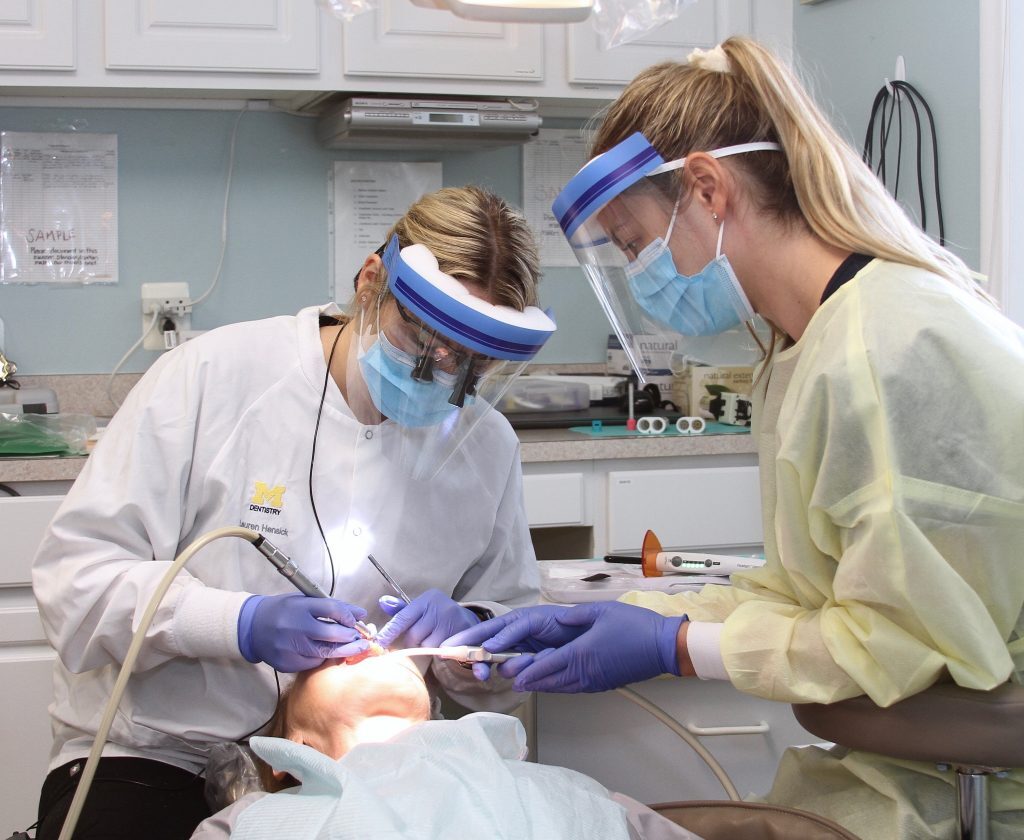
Dental students Lauren Hensick (left) and Kelly Chick treat a veteran at the VINA clinic.
As Veterans Day 2021 arrives, the School of Dentistry is marking the completion of its first year of providing expanded dental care for Michigan military veterans at a second community-based clinic in Michigan, with planning is underway for a third location.
Dental students and adjunct faculty from the school joined with the VINA Community Dental Center in Brighton starting in October 2020 to provide comprehensive care to disabled, homeless or uninsured veterans who have incomes at or below 200 percent of federal poverty guidelines.
The clinic is part of the dental school’s Victors for Veterans program, or V4V, which was established in 2012. For the last decade, it has provided no-cost treatment for nearly 500 veterans, mostly living in northern Michigan, at clinics in Traverse City and Gaylord. The dental school is expanding on the success of that first initiative by establishing the second clinic in Brighton that is now serving veterans in southeast Michigan.
The newest addition at the VINA clinic was organized, researched and advocated by dental students as part of the school’s Pathways Program, which requires students to complete a research-related project in an area of special interest to them. A team of four students – Kelly Chick, Chrissy Gauss, Lauren Hensick and Hayley Laird Popp – began working on the project three years ago as first-year students. Now in their final year before graduating next spring, they are treating patients in the clinic they helped create.
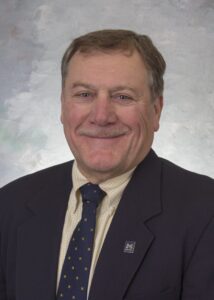
Faculty member Dr. Howard Hamerink, Associate Director of Community-Based Collaborative Care and Education and the V4V program director, tasked the student group with determining the best location to serve the most veterans in southeast Michigan. It also required finding an organization from a local community that would champion the new clinic and its value to veterans. The students researched population demographics for veterans, contacted local organizations, learned how to write funding grants and eventually established a link with the VINA clinic, successfully lobbying the organization’s board to host the V4V program at its existing clinic in Brighton.
VINA, an acronym for vision, integrity, need and action, was established in 2008 to provide basic dental care to low-income, uninsured adults in Livingston County. VINA is supported through fundraising events, contributions from the community and limited local grants. School of Dentistry students had already provided dental care for general patients at the facility for the last several years before adding the focus on veterans last October. The VINA clinic is now serving veterans from seven counties – Livingston, Oakland, Genesee, Jackson, Shiawassee, Ingham and Washtenaw.
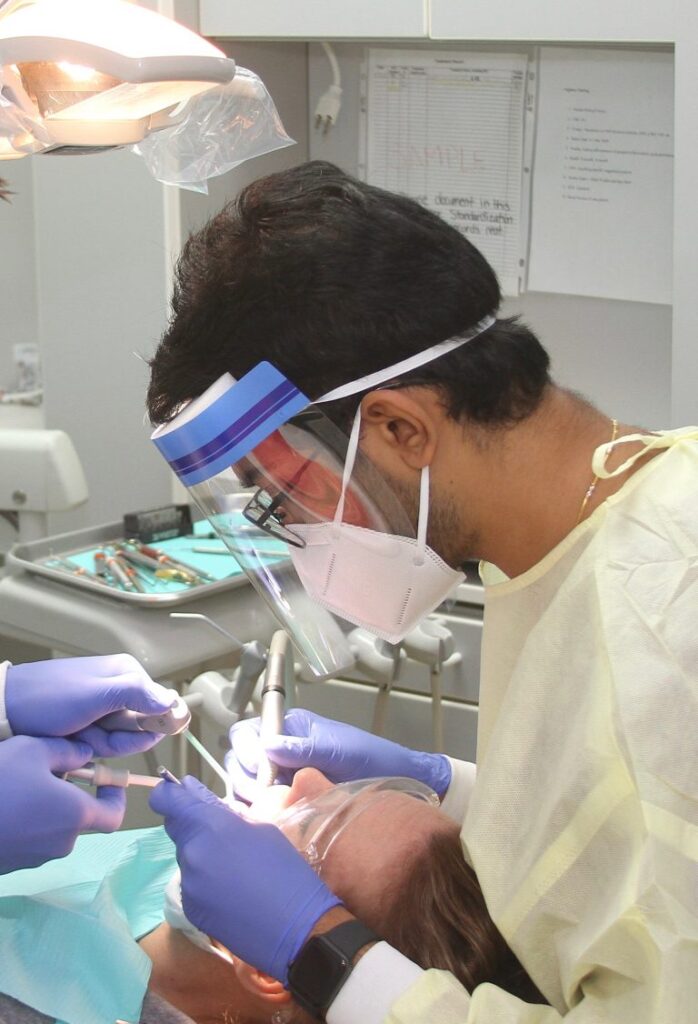
V4V is part of the School of Dentistry’s CBCE program, led by Associate Dean Dr. Mark Fitzgerald. CBCE is the dental school’s outreach program that places third- and fourth-year dental students, dental hygiene students and graduate dental residents in rotations at clinics across the state of Michigan where they provide care to underserved populations.
The V4V program requires students to volunteer beyond the standard CBCE program, volunteering their time and dental skills to the two specialized clinics for veterans. Adjunct faculty and staffers who support the Traverse City and VINA clinics are also volunteers. Despite those significant contributions, the clinics still require outside funding to pay for supplies, utilities and whatever leasing agreements are necessary with the host clinic.
The VINA clinic was launched with a significant financial gift from the Michigan Dental Association Foundation. It made a three-year commitment totaling $45,000. The Traverse City V4V clinic was originally funded with a $150,000 grant from the Delta Dental Foundation, which recently provided a second grant of $270,000 for that clinic and to help secure a third V4V clinic in the Pontiac area. Several other donors provide in-kind services or reduced rates for the clinics.
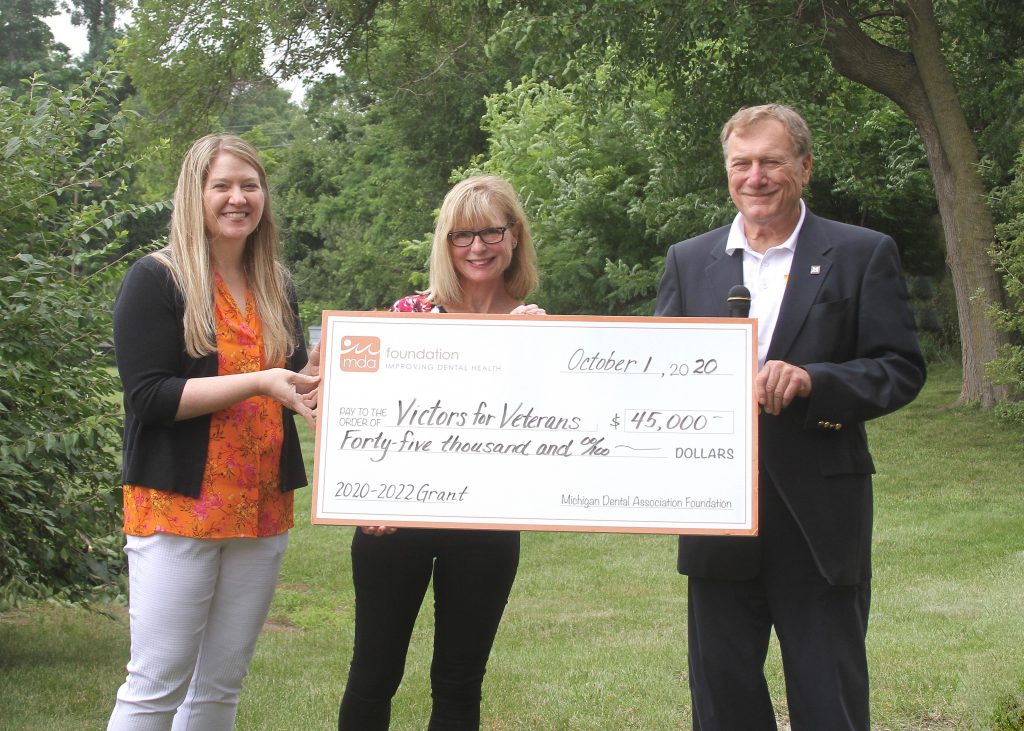
Hamerink says the two V4V clinics – and the third expected to open in the Pontiac area in 2022 – fill a large and important need in the unique patient population comprised of veterans. Because the VA provides dental care only for those veterans who suffered orofacial injuries during combat, many veterans, particularly those in lower socioeconomic groups, have not had regular dental care over the course of their lives after leaving the military. That means they often have major dental problems that take multiple dentist office visits to solve. Those requirements can be prohibitively expensive for someone on a fixed income, who doesn’t have comprehensive insurance coverage or who doesn’t qualify for state or federal assistance for various reasons.
“They are a highly complex, special-needs population – medically, emotionally, physically and socially,” Hamerink said. Their significant dental needs are often complicated by chronic pain, post-traumatic stress syndrome and addiction issues. That’s why having the V4V clinics provide ongoing, comprehensive care is so important. While Hamerink supports and has provided treatment at special one-day veterans clinics that are held occasionally around the state, the V4V clinics provide a more consistent impact on the veterans’ health because they support as many repeat visits as necessary.
The benefits of the V4V clinic in Brighton was evident during testimonials of veterans during a picnic for patients and their families at VINA in July. It was held to increase awareness of the veterans dental program and to thank the staff, students and organizers who created and maintain the clinic, as well as benefactors. Several of the veterans who have received treatment at the clinic attended and two shared what it has meant to them.
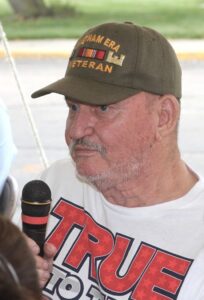
James Hoskins, 76, of Howell, a U.S. Army veteran who served in Korea from 1963-66, said he is grateful he was referred to VINA by Dr. Fredric Bonine, a Brighton oral and maxillofacial surgeon. Bonine, one of the founders of VINA, is an adjunct faculty member at the School of Dentistry. Hoskins said he wouldn’t have been able to afford even part of the treatment he needed because of so many missing and broken teeth. “When I got over here I was pretty depressed. I didn’t have any teeth. I didn’t know what was going to happen. I’m still depressed but at least now I can smile,” he said with a laugh and to applause from the audience. “This has meant to the world to me. Without this place, I’d have been running around Brighton with no teeth.” He said he is eating better and likes the smile that came with his new dentures. He praised the staff and students who provided the treatment during his approximately 10 appointments. “Everybody was so nice. The students were like family. When I was sitting in the chair and they were done, I didn’t want to leave.”
During the event, Hamerink and VINA executive director Jim Gilmore said the VINA clinic and its V4V program could not exist without the dedication and financial support of many individuals, groups and professional organizations. Hamerink noted the importance of two adjunct faculty members, Drs. Mark Migdal and William Metz, who volunteered to be the first two VINA faculty, called preceptors at the CBCE sites. Hamerink also had high praise for the extended commitment of the four students whose research project led to the VINA veterans clinic. He noted that they have dedicated all four years of their dental school formulating the project and then providing dental care for the veterans once it opened.
Two of the students, Lauren Hensick and Kelly Chick, spent the morning of the picnic, as they do on many Fridays during each semester, treating patients at VINA. Hensick said she was drawn to the project because she learned to respect the important contributions of veterans through having several in her family. “The highlight has been seeing this take off from the beginning. We put it together and now we are seeing and treating patients and improving their quality of life.”
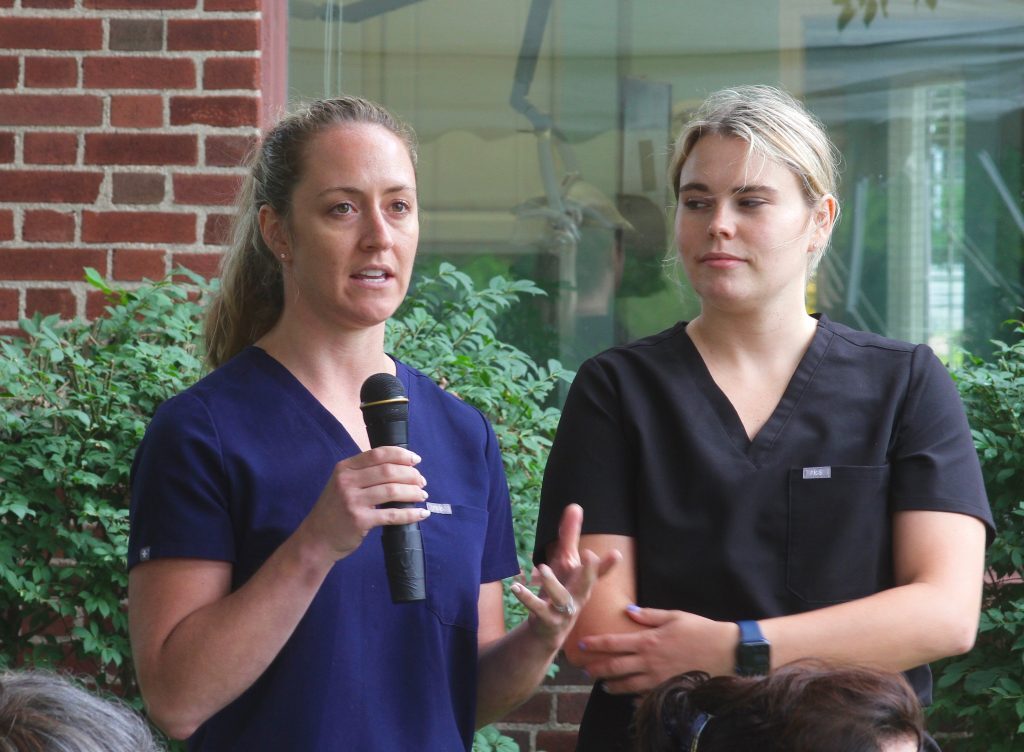
Chick said her interest is in part because of grandparents who served in the military, as well as her parent’s leadership in starting a Fisher House at the Ann Arbor VA hospital. The houses, located around the country, serve as a home for relatives when veterans are receiving treatment, sometimes for months, at the adjacent VA hospital. Working on the VINA clinic seemed like a good complementary way to assist veterans on her own, she said. “This has really been a unique experience – getting to see the whole process, what it’s like to do the research and secure funding. Before this, I didn’t know how to apply for a grant. It’s been very informative, very good knowledge for us to have for the future. We’re grateful to serve this very deserving population and have this experience at this clinic.”
In a recent email thanking the many volunteers, students, dentists, faculty, benefactors and dentistry companies who have supported the V4V program, Hamerink recounted a few statistics about the 10 years since the first clinic opened in northern Michigan. The program has provided free comprehensive care valued at about $1.7 million to more than 480 veterans statewide. The number of students who volunteer to be involved with the program is growing and now represents 10 percent of all DDS students, who must contribute their time and skills above and beyond their many other challenging academic requirements.
“Thank you all for your efforts to serve those who served!” Hamerink told all those involved with the program, then added, “Changing the lives of 480 veterans – priceless.”


